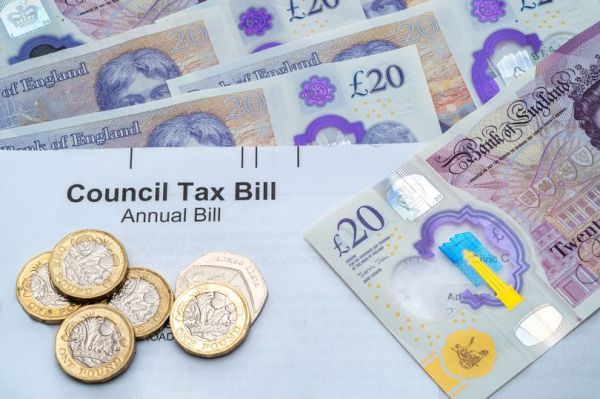
Council tax is rising for millions of households from today. The average band D bill will hit £2,280 from this April - an increase of £109 or 5%.
Councils in England that provide social care services are allowed to increase by up to 4.99% without holding a referendum. There are six places in England that have been given permission to allow even bigger rises. Bradford Council has been granted an increase of 10%, while Newham and Windsor and Maidenhead council tax bills are going up by 9%.
Birmingham, Somerset and Trafford residents have been allowed a rise of 7.5%. But there are ways you may be able to lower your council tax bill. The latest figures from Policy in Practice show 2.3million people are failing to claim that they're fully entitled to.
READ MORE:
READ MORE:
 Council tax discount
Council tax discount
There are lots of different circumstances where you could be entitled to a discount on your council tax bill. For example, if you live alone, you get 25% off your council tax bill. The same goes if there is one adult living with someone else who is "disregarded" from payment council tax.
This can include full-time students, children under the age of 18, adults who have been diagnosed with a "severe mental impairment" and live-in carers. You can see a list of everyone who is "disregarded" from paying council tax on . If everyone in your home is "disregarded" from payment council, then you could get 50% off.
The maximum 100% discount is awarded if someone lives alone is considered to be "severely mentally impairment" and is claiming benefits, or if you live in an all-student household. There is no set list of conditions that could class you as having a "severe mental impairment" for council tax purposes. You must be medically certified by your GP.
On benefits or low incomeThere are Council Tax Support or Council Tax Reduction schemes for people claiming benefits or on low incomes. The exact help varies between councils but your bill could be reduced by up to 100%. It may also be possible to get your council tax bill backdated to when you first started claiming benefits.
The help you could get generally depends on what benefits you claim, your income, if children live with you, and if other adults are in your household. These discounts aren't automatic - so you need to apply for them. To see what support could be available, contact your local council.
Lower your council tax bandNot everyone is in the right council tax band - and if you're accidentally in too high of a band, you could be owed thousands of pounds back, plus lower bills going forward. You first need to check what council tax band your neighbours are on, based on properties of similar size and value to your home.
You can check council tax bands online at for houses in England and Wales, or the for properties in . Next, work out how much your property was worth in 1991, as this is when council tax system was launched. has a free calculator tool to help you do this.
Once you've done these checks, if you think you're in too high of a band, you can contact the (VOA) in England and Wales or the (SAA) in Scotland to submit your challenge. If you disagree with their decision, you can appeal at the.
It is important you do your research and complete these steps first, as if you're in too low of a band, you could get moved up and your bills will become more expensive. Your neighbours could also end up being bumped up if it turns out your entire street is in the wrong council tax band.